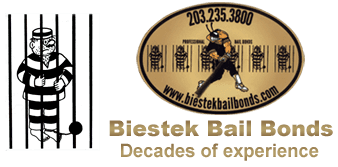Avoid legal and financial pitfalls by understanding how it works.
The phone rings and wakes you from a sound sleep at 12:30 AM. You manage to answer in a groggy voice and your best friend says frantically, “I need you to bond me out! Bring down $1,000 cash or call a bail bondsman. My bond is $1,000.00 please get me out! I’ll explain later, just hurry down to the local police station."
You want to help your desperate friend but you don’t have $1,000 cash lying around. What is your next move? You call a bail bondsman.
Many people don’t know the function of a bail bondsman in the judicial system. Bondsmen are an integral part of the system but from a peripheral vantage point. They are seen (in hordes) but are rarely heard from (on the record) at any given courthouse.
You call a bondsman, and the fee you pay him or her is non-refundable. If you provided extra collateral money above the required mandatory fee, that money is to be returned to you within 21 days upon written receipt from the court to the bondsman that the bond has been terminated. It is always wise to demand a receipt for any monetary transaction involving a bail bondsman.
If you did have $1,000 to put up for your friend, a bondsman wouldn’t be necessary.
Choose the option that is best for your situation.
There are a variety bond types and ways to obtain someone’s release from custody.
A non-surety bond is basically a promise to appear in court with a dollar amount attached to it. The theory behind this practice is such: if a defendant fails to appear, the non-surety bond amount will be forfeited. This means the defendant technically is liable to the State of Connecticut for that amount. This type of forfeiture is rarely, if ever, enforced. A cash bond means just that: CASH. A defendant or someone on his behalf would post the entire amount of bond in cash and would receive that cash bond back in the form of a check once the case has been terminated. A surety bond involves a bondsman (there are two types of licenses issued in Connecticut) with mandatory minimum and maximum fees associated. Insurance producer bondsmen, licensed by the Department of Insurance, are legally required to collect at least 35% of the premium due before writing a bail bond. Professional bondsman, licensed and monitored by the Dept. of Public Safety, has a $50.00 minimum requirement no matter what the premium is. Both Insurance producer bondsman and Professional bondsmen have a finite maximum fee. In other words, over charging on a fee is prohibited.
Real estate bonds are also permitted by the court. In this case a property, or properties, would be offered as bail to cover the entire amount of the bond set by a judge. The property must have enough equity to ensure the state, that if the defendant absconded, there would be ample available cash to cover the forfeiture. Cash bonds, surety bonds, and real estate bonds, that have been forfeited due to nonappearance by a defendant are almost always enforced.
As I mentioned earlier, bondsmen are often seen hanging around courthouses and jails begging for business. Illegal solicitation in and on the grounds of courthouses is an embarrassing problem in the bail industry. Some measures have been taken to enforce this regulation, but it is still quite evident and seems to be increasing without sanctions.
When confronted with a bail bond issue, always use a reputable agent you can trust.

